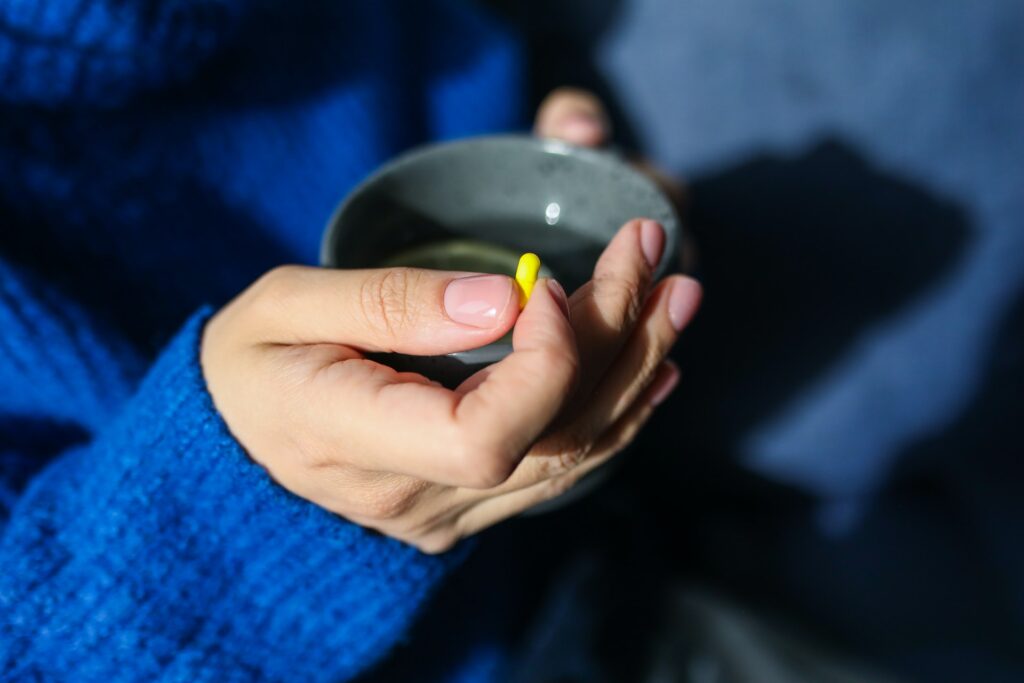Drug & Alcohol Rehab in Woodstock
Drug and alcohol addiction rehab in Woodstock is split into three stages: detox, therapy, and relapse prevention.
Each of these evidence-based treatments are different yet equally important for recovery, and individuals need not feel anxiety when thinking about them.
Rehab is a carefully structured process, and individuals will be supported by addiction specialists throughout each treatment.
Learning about the different components of rehab can go a long way in dispelling uncertainty.
Stage 1: medical detox

Detox is a word often associated with suddenly quitting a behaviour or substance, but this is a misconception.
The idea of rapidly stopping something suggests an intense experience, but the goal of addiction detox is to provide the opposite, easing individuals into sobriety.
The first stage of drug and alcohol rehab in Woodstock helps individuals to gradually reduce their consumption of a substance.
Under the supervision of doctors, their progress is monitored so that they wean themselves in a safe and effective way.
Detox is considered to be the most medical aspect of rehab, and it is best conducted with the support of trained medical staff.
At Rehab Recovery, we offer free advice from a team of non-judgemental professionals, many of whom are in recovery and understand how hard it can be to change your relationship with addiction.
For more information about rehab in Woodstock, simply reach out to our 24/7, confidential hotline on 0800 088 66 86.
Stage 2: addiction therapy

When we think of therapy, we can think about deep-rooted emotions and talking them through in order to achieve peace.
In rehab, this idea is not too far from the truth, but sessions can engage with much more than just emotions.
Addiction therapy looks to help individuals identify the triggers responsible for their condition.
Whether it is feelings, thoughts, relationships, or health, sessions equip individuals with the skills needed to manage them without relying on substance abuse.
Stage 3: relapse prevention
After detox and therapy, rehab shifts its focus towards the life an individual will live after treatment. Relapse may seem like a sign of failure, but it is very common amongst newly recovered individuals [1], and so programmes incorporate its prevention into treatment.
Relapse prevention’s goal is to prepare individuals for facing the triggers they identified during therapy. This can involve practising a number of trigger management techniques which look to pre-empt and counter their negative effects on mood and behaviour.
How detox helps with withdrawal symptoms

Withdrawal is one of the biggest signs of a substance use disorder, and individuals must take care when reducing their substance use due to the dangers associated with it.
Suddenly stopping consumption can trigger various dangers, so how does detox handle this risk?
By gradually reducing consumption, detox treatment minimises the difference which the body experiences each day.
By taking numerous smaller steps, the chemical and hormonal balances within the body can change slowly, adjusting over a matter of days.
Withdrawal can still occur with the slow and steady approach, but detox remains safe, however, because of medical supervision.
The pace of the process can be slowed to the speed that the body can cope with, and medications can also be provided.
Benzodiazepines are the primary option for detox medication. They can dampen withdrawal symptoms, ensuring that individuals can remain safe as they become sober and continue their positive progress.
Supervision also prevents these medications from becoming the source of new drug addiction.
At Rehab Recovery, we offer free advice from a team of non-judgemental professionals, many of whom are in recovery and understand how hard it can be to change your relationship with addiction.
For more information about rehab in Woodstock, simply reach out to our 24/7, confidential hotline on 0800 088 66 86.
The many faces of addiction therapy

Therapy is not a one-dimensional treatment. It is the most malleable stage of drug and alcohol rehab in Woodstock, able to change how it operates in order to target a wide range of triggers which an individual might be suffering with. But how many shapes can it adopt?
Here are some of the most common.
1. Cognitive Behavioural Therapy (CBT)
The way an individual thinks can become skewed, leading them into ways of behaving which are unhealthy and do not reflect the reality they experience.
When individuals’ thoughts or worldview consistently encourage substance abuse, addiction can spark.
CBT looks to challenge these kinds of patterns and interrupt their consistent effect on behaviour.
By reworking how an individual thinks, sessions create new ways of seeing the world and equip individuals with ways to sustain their new outlook.
2. Dialectical Behavioural Therapy (DBT)

Emotions are powerful, and they fuel a lot of our behaviour as human beings. Sometimes, they can also be responsible for our more self-damaging actions, and this applies to addiction.
Shame, regret, sadness, anger – these can all encourage addictive habits in their own ways.
To learn how to better handle these intense feelings, DBT encourages individuals to talk about them and where they come from.
3. Group therapy
Individual therapy can be an effective approach to drug and alcohol treatment. However, speaking with and hearing the experiences of others recovering from substance use disorders can provide new dimensions to an individual’s recovery.
In group therapy, they can hear about the recovery journeys of others and gain a sense of hope and optimism.
They can also become more motivated for their own treatment after seeing the ways in which it can benefit them down the line.
At Rehab Recovery, we offer free advice from a team of non-judgemental professionals, many of whom are in recovery and understand how hard it can be to change your relationship with addiction.
For more information about rehab in Woodstock, simply reach out to our 24/7, confidential hotline on 0800 088 66 86.
4. Holistic therapy

There is a developing idea within the practice of addiction rehab that individuals can recover via treatment which boosts their overall wellbeing.
Rather than focusing merely on a trigger, it is now thought that recovery can be achieved through a focus on the entire individual.
Holistic therapies can utilise art, music, exercise, and mindfulness to help individuals feel better and see the world in a different way.
By improving their wellbeing and sense of purpose, this treatment can draw them away from addiction and promote healthy living.
5. Family therapy
Disagreements within the family unit can cause serious emotional damage and scarring. Individuals can struggle to deal with problems with their relatives or partners, turning to alcohol or drug abuse to cope.
Family therapy combats this by bringing the relevant relatives into sessions.
Discussions are then facilitated to identify where the addiction triggers lie and understand how the situation can be remedied. Preventative methods are also practiced.
Dual diagnosis: the hidden key to recovery

Mental illness and drug addiction are strongly connected. Individuals with addictions often live with anxiety, depression, or panic disorder, and this correlation is very integral to treating addiction effectively.
The identification of these co-occurring disorders is known as dual diagnosis.
Addictions can be the result of individuals struggling to cope with their mental health, but conditions like anxiety can also manifest as a result of the effect addictive substances have on the mind.
Dual diagnosis means that therapy can target mental health conditions as addictive triggers and provide individuals with the means of handling them.
If addiction has triggered the psychological problem, it enables treatment to sooth and ease an individual’s pain.
Without dual diagnosis, the process identifying an individual’s triggers can be longer than it needs to be.
Rehab is best conducted as quickly and effectively as possible, so dual diagnosis is central to an effective recovery journey.
At Rehab Recovery, we offer free advice from a team of non-judgemental professionals, many of whom are in recovery and understand how hard it can be to change your relationship with addiction.
For more information, simply reach out to our 24/7, confidential hotline on 0800 088 66 86.
The duration of drug and alcohol rehab in Woodstock

Committing to drug and alcohol rehab in Woodstock means individuals will need to take time away from work and their family.
Arranging this can be difficult, however, and it will be important to know how long their absence can be expected to be.
28 days is the duration of time individuals usually spend undergoing treatment for drug addiction.
Detox tends to last between 7 and 10 days, and the remaining 3 weeks are spent progressing through therapy and relapse prevention.
Some individuals may find that their experience takes longer, and this could be for a few reasons.
More severe conditions – having developed over the course of years – can take longer to work through. Health conditions and low motivation can also slow proceedings.
The price ranges for drug and alcohol rehab in Woodstock

When it comes to the cost of drug and alcohol rehab in Woodstock, different facilities will charge different amounts.
UK prices for a week’s treatment for drug addiction average out to around £14,000, but there are plenty of services which charge between £1,000 and £10,000.
On the more expensive side of things, luxury treatment clinics can charge up to and beyond £70,000.
Addiction support services can be unaffordable for many people. Not everyone has thousands of pounds in savings, and that’s why councils have funds allocated to helping those who struggle with addiction get the help they need.
At Rehab Recovery, we offer free advice from a team of non-judgemental professionals, many of whom are in recovery and understand how hard it can be to change your relationship with addiction.
For more information about rehab in Woodstock, simply reach out to our 24/7, confidential hotline on 0800 088 66 86.
How am I supposed to know if I need rehab?

Knowing when addiction treatment for drug addiction is necessary can be difficult, especially since many people who develop dependencies on a substance can exhibit intense denial [2].
However, there are many noticeable signs which can indicate when consumption has become unhealthy:
- Using a substance daily or several times a day
- Trying to stop substance use and failing
- Experiencing withdrawal symptoms when sober
- Obsessing over a substance or its acquisition
- Using a substance in inappropriate settings, such as at work or in public
- Abandoning hobbies and relationships to prioritise substance use
- Failing to upkeep personal appearance or hygiene
- Underperforming at work or school
Withdrawal symptoms can manifest in a variety of different ways. Some of the most common include:
- Insomnia
- Shaking
- Vomiting
- Diarrhoea
- Headaches
- Anxiety
- Depression
- Delirium Tremens – a symptom specific to alcohol withdrawal which can be potentially fatal
Selecting the right form of addiction support for you

The decision to begin looking for drug and alcohol rehab in Woodstock in an all-important one on the road to recovery.
What follows, however, is the process of finding the right treatment facility and programme, and this can be difficult.
Everyone’s needs are different, and the nature of an individual’s addiction will mean they require unique approaches to recovery which cater to their physical state and addictive triggers.
Below are some of the most important things to keep in mind:
What treatments do you require?
Every substance use disorder will require its own unique combination of treatments. Some conditions involve a serious physical dependency, meaning detox is a necessity.
Others are purely psychological, and may require a combination of therapy techniques.
Before beginning your search, speak with a doctor, GP, or addiction specialist and get an assessment of your condition.
This will provide an understanding of whether you are in need of detox and what kind of therapy you might benefit most from.
With this information, you can then tailor your search to seek programmes which offer effective treatments.
At Rehab Recovery, we offer free advice from a team of non-judgemental professionals, many of whom are in recovery and understand how hard it can be to change your relationship with addiction.
For more information about rehab in Woodstock, simply reach out to our 24/7, confidential hotline on 0800 088 66 86.
What are you able to afford?

Finances play an important role in the search for appropriate rehab. You can only access the support which you are able to afford, so take the time to consult your budget and then limit your search so that your options fall within this range.
If you are unable to pay for your treatment out of your own pocket, be sure to look into financial support options. Local councils set aside funds for helping those who need drug and alcohol rehab in Woodstock but can’t afford it.
What kind of experience are you looking for?
While individuals will vary in what support they need, they can also be unique in what support they desire.
Some may want a slow and luxurious experience, focused more on enjoyment and relaxation, whereas others may want to simply recover as fast as possible.
Facilities will pride themselves on being able to offer unique experiences which cater to different individuals’ tastes.
If you are able to afford to choose, consider whether you might have a better experience in one sort of facility than another.
Do you want to hear from previous patients?
If you want to know what it is actually like to spend a prolonged period of time within a certain facility, you can really benefit from taking the time to read reviews left online by previous patients.
Although people can have different reactions to the same kind of experience, these reviews can offer insights into the accommodation, catering, and available activities within a facility.
How Rehab Recovery can help

Realising that you need addiction support can be a really stressful and frightening situation to be in.
You can be full of questions concerning substance use disorder, triggers, treatment, and aftercare – but you don’t need to make your recovery plans alone!
At Rehab Recovery, we understand how difficult it can be to kickstart the road to recovery, That’s why our dedicated and compassionate team are on hand to help guide you through this difficult phase.
If you need answers or recommendations, we can offer it all.
At Rehab Recovery, we offer free advice from a team of non-judgemental professionals, many of whom are in recovery and understand how hard it can be to change your relationship with addiction.
For more information about rehab in Woodstock, simply reach out to our 24/7, confidential hotline on 0800 088 66 86.

References
[1] https://www.ncbi.nlm.nih.gov/pmc/articles/PMC4553654/
[2] http://pure-oai.bham.ac.uk/ws/files/25519189/DENIAL_PICKARD_M_L_FINAL_PRE_PROOF.pdf


